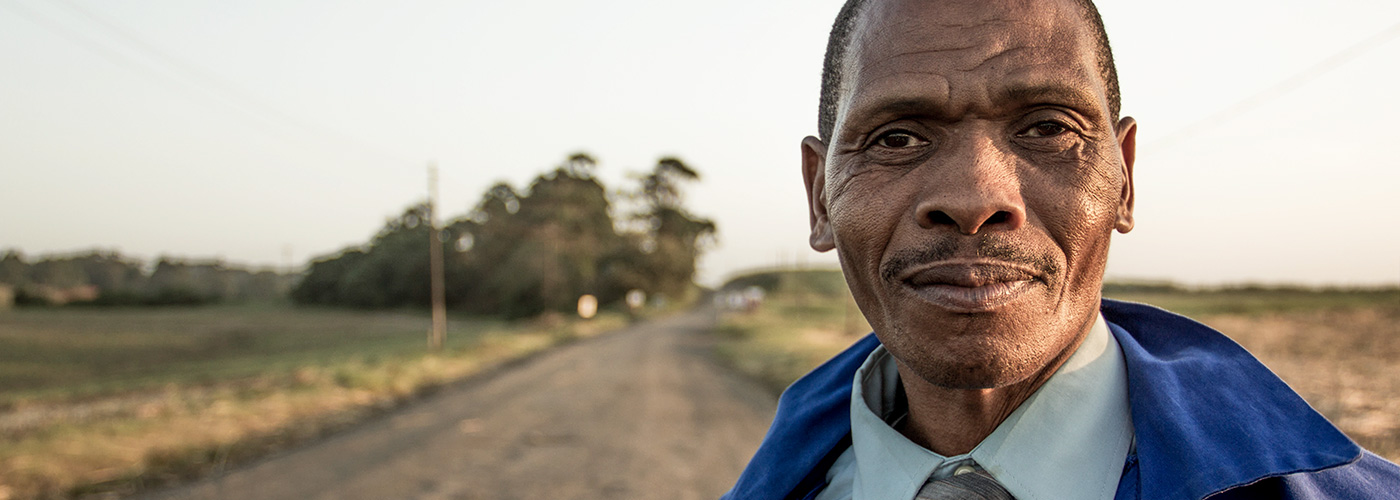At Project Literacy Lab, we had a chance to catch up with Thomas Debass. As Managing Director at the U.S. Department of State, Debass is responsible for managing and building partnerships related to economic growth, global finance, entrepreneurship, and innovation. Debass is a vanguard in implementing public-private partnerships and strongly believes in these partnerships as a tool for foreign policy and development.
Our rapidly evolving world has forced the public sector and private sector to reexamine their relationship. Historically, the U.S. public sector has provided the vast majority of development aid. Yet over the last two decades, trade policies and information technology innovations has shifted the U.S. government aid to represent only 13%, while a whopping 87% now comes from the private sector.
U.S. government aid now only represents 13%, while a whopping 87% comes from the private sector. Tweet This Quote
This change allowed for a multitude of global players to get involved, which, according to Thomas Debass, Managing Director of the U.S. State Department, is a good thing. As he puts it, “governments cannot solve issues on their own.”
Instead, the State Department believes development should be collaborative. More so, it’s an opportunity to leverage the abilities and perspectives of private enterprises in order to create better strategies. By reexamining how to work best with the private sector, the U.S. Department of State is embracing a new era of collaboration and cultivating creative partnerships. Below are a few examples of collective endeavors between the State Department and the private sector.
Investing in Human Capital
In 2013, the State Department noticed a disconnect between the number of foreign policy challenges and how many young leaders were willing to tackle them. That’s why, Secretary John Kerry, Debass, and their team partnered with 28 U.S. colleges and universities to develop Diplomacy Lab, an ongoing initiative that “enables the State Department to ‘course-source’ research and innovation related to foreign policy challenges.” In other words, Diplomacy Lab open sources real foreign policy challenges by making it a part course curriculums.
[Students] have an intimate connection with what is going on, and can become a conduit for change. Tweet This Quote
In addition to “broadening the Department’s research base,” more students across the United States now know about the possibilities of working with the public sector, and as Debass points out, “have an intimate connection with what is going on, and can become a conduit for change.” For Debass, it’s simple: “Your problem is our problem,” he says. “When our policy intersects with [one’s] business model, there’s the opportunity to [collaborate].”
Scalable Solutions for Fishermen
In the global fishing industry, 50% of fish caught for consumption comes from small-scale fishermen. Yet their livelihoods and the communities they support are at risk due to overfishing and illegal practices by large-scale fishing companies. Harnessing the power of mobile technology, the State Department teamed up with Tone, a private enterprise that increases access to mobile broadband and GSMA, a multinational corporation that represents over 800 mobile carriers in 220 countries to create mFish—a mobile app that “links fishermen with markets and builds capacity for improved fishery management, as well as creates a network of fishermen.”
Governments cannot solve issues on their own. Tweet This Quote
With the same interest in protecting fishermen, plus a dose of originality, the State Department launched Fishackathon with Tone, Virgin and hackathon platform Devpost. By tapping into a larger and more diverse resource-base including entrepreneurs, designers, and technologists the Department was able to source new ideas from a variety of perspectives. Currently Fishackathon has been hosted in 43 different cities, and has included 2,000 plus coders from six different continents.
Empowering Migrant Communities
According to Debass, “the second highest outflow from the US is remittances, money sent by migrants back home to their families.” As reported by the Hudson Institute’s Center for Global Prosperity, “Remittances from individuals, families, and hometown associations in the United States to developing countries reached an estimated $100.2 billion in 2011, an increase from $95.8 billion in 2010.”
To figure out how to make the outflow smoother, Debass again turned to the entrepreneur community. “[Some] migrants might actually be entrepreneurs. How do we help them start enterprises in their own country that can help create jobs?”
[Some] migrants might actually be entrepreneurs. How do we help them start enterprises in their own country that can help create jobs? Tweet This Quote
That’s when the State Department partnered with Western Union to develop African Diaspora Marketplace, a platform that offers “seed capital, technical assistance, market linkages, and access to finance” to US-based migrants. Since its inception in 2009, ADM has assisted 34 diaspora ventures with a total of $2.5 million in seed capital. On another level, as Debass points out, empowering the migrant community helped them to be perceived “not just as poor people sending money home, but as agents of change.”
Not only has greater global access and exponential technology catalyzed a shift in development aid, it has opened up a new realm of opportunities for cross-sector collaboration. The public sector offers its diplomatic access, clout, and credibility, while private enterprises provide innovative solutions that create jobs and reveal powerful insights. This redefined relationship allows both players to leverage their strengths, resulting in wholly unique projects that truly lead to progress in global development. What’s more, representing the front lines for the private sector, it is entrepreneurs who have the most to gain from these partnerships.



